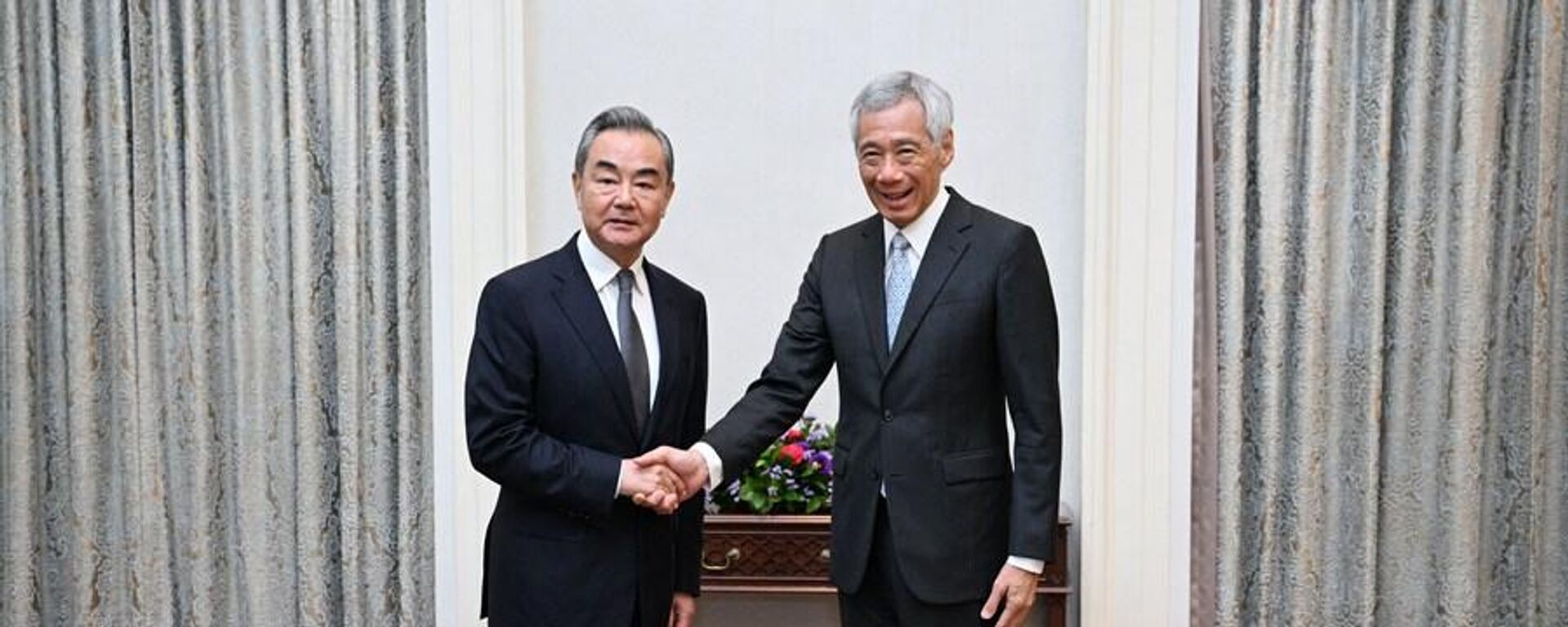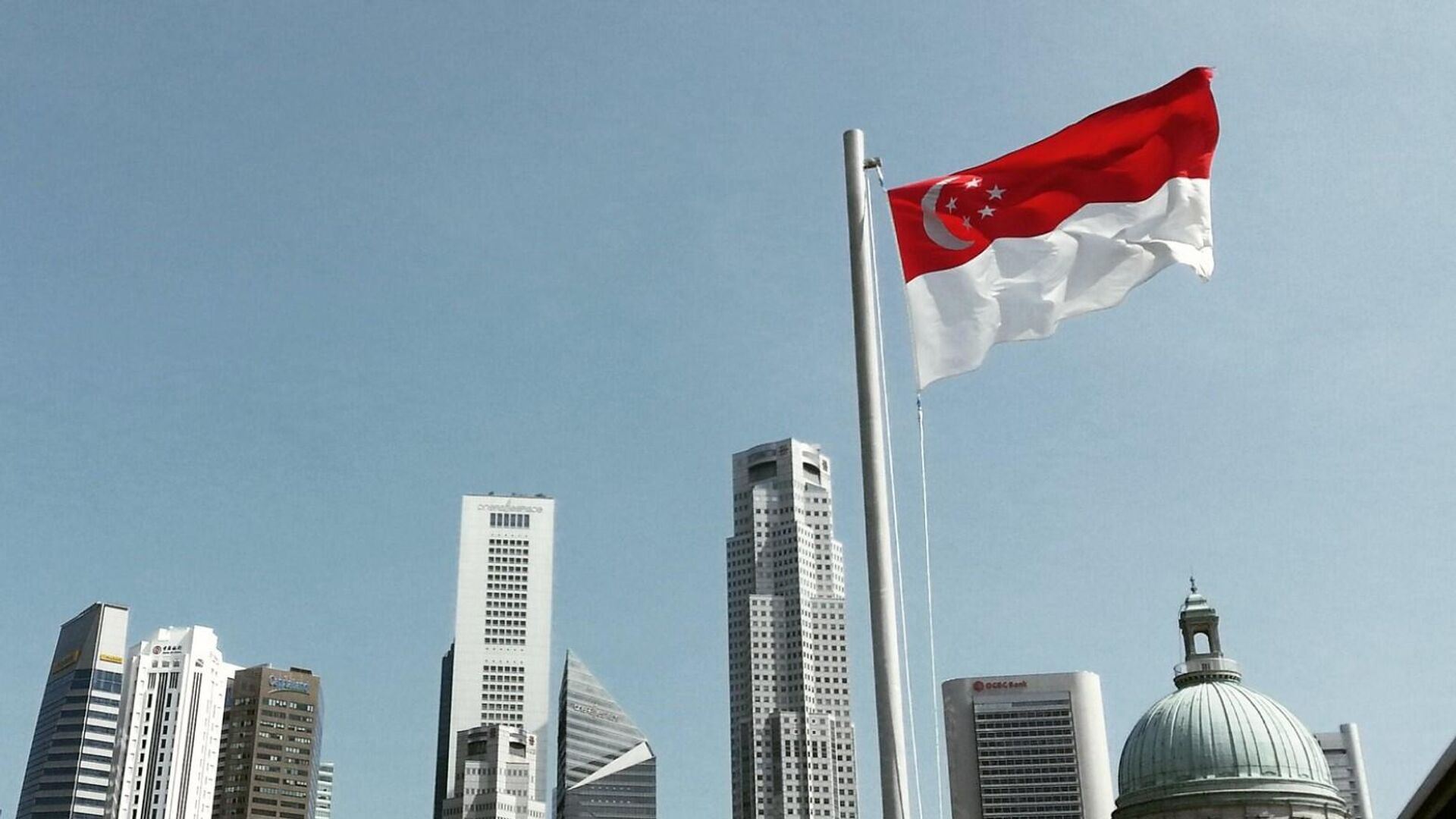https://sputnikglobe.com/20230814/singapores-deputy-pm-warns-city-state-facing-structural-decline-without-immigration-1112588169.html
Singapore’s Deputy PM Warns City-State Facing ‘Structural Decline’ Without Immigration
Singapore’s Deputy PM Warns City-State Facing ‘Structural Decline’ Without Immigration
Sputnik International
The Southeast Asian city-state has such a low birth rate that without a steady stream of immigration, its economy will crumble, Singapore’s deputy prime minister has warned.
2023-08-14T16:00+0000
2023-08-14T16:00+0000
2023-08-14T17:11+0000
world
singapore
immigrant labor
immigration
migrants
birth rate
https://cdn1.img.sputnikglobe.com/img/07e7/06/01/1110843959_0:0:1565:881_1920x0_80_0_0_f402a80e0b30c7f8ed912abc4b7d8275.jpg
“If we are not able to bring in immigrants to top up the population then we are in structural decline, and eventually the population will decline, the workforce will decline and Singapore will decline,” Deputy Prime Minister Lawrence Wong said at the Reinventing Destiny conference on Monday.Singapore has suffered the tribulations of many other highly-developed economies, including a declining birth rate. Last month, the latest figures released by the Singaporean Immigration and Checkpoints Authority (ICA) showed that Singapore’s birth rate hit a record-low in 2022, including a 7.9% decrease in live births just from the prior year.Indranee Rajah, who serves as Minister in the Prime Minister's Office, told a parliamentary committee at the time that the decline was in part because it was the Year of the Tiger "in the lunar calendar, which is generally associated with lower births among the Chinese," who form 74% of the country's population.However, critics noted that the skyrocketing prices of homes in Singapore was a major factor, since it limits the ability of couples to set out on their own, requiring them to spend more of their lives saving money to get their own home.Fertility encouragement is nothing new in the Southeast Asian city-state, which rolled out its first such policies in 1987.About 3.5 million of Singapore’s 5.5-million-strong population are citizens, with another 500,000 classified as permanent residents and 1.45 million classified as non-residents - nearly all of whom are migrant workers, but in which foreign students are also included.According to the International Labor Organization (ILO), this vast class of labor is necessary to fill roles in Singapore’s industrial sector, but is also highly prevalent in domestic work.Speaking on Monday, Wong noted that Singapore is controlling the number of immigrants who will be allowed to work.“At the end of the day, the numbers are constrained by how much we are able to integrate the new arrivals” and how the migrants “embrace our values and way of life,” he said.In 2022, just 23,100 people were granted Singaporean citizenship and about 34,500 new permanent residencies were granted.
https://sputnikglobe.com/20221028/number-of-births-in-finland-drops-to-lowest-ever-amid-record-mortality-immigration-1102787806.html
https://sputnikglobe.com/20230811/chinas-wang-yi-warns-singapore-us-biggest-destabilizing-factor-in-the-world-1112542462.html
singapore
Sputnik International
feedback@sputniknews.com
+74956456601
MIA „Rossiya Segodnya“
2023
News
en_EN
Sputnik International
feedback@sputniknews.com
+74956456601
MIA „Rossiya Segodnya“
Sputnik International
feedback@sputniknews.com
+74956456601
MIA „Rossiya Segodnya“
singapore; birth rate; immigration; migrant workers
singapore; birth rate; immigration; migrant workers
Singapore’s Deputy PM Warns City-State Facing ‘Structural Decline’ Without Immigration
16:00 GMT 14.08.2023 (Updated: 17:11 GMT 14.08.2023) The Southeast Asian city-state has such a low birth rate that without a steady stream of immigration, its economy will crumble, Singapore’s deputy prime minister has warned. Its society is rapidly aging and its birth rate has fallen well below the widely accepted “replacement rate” of 2.1 children per mother.
“If we are not able to bring in immigrants to top up the population then we are in structural decline, and eventually the population will decline, the workforce will decline and Singapore will decline,” Deputy Prime Minister Lawrence Wong said at the Reinventing Destiny conference on Monday.
Singapore has suffered the tribulations of many other highly-developed economies, including a declining birth rate. Last month, the latest figures released by the Singaporean Immigration and Checkpoints Authority (ICA) showed that Singapore’s birth rate hit a record-low in 2022, including a 7.9% decrease in live births just from the prior year.
The report showed that the median age of first-time mothers has risen from 30.6 years old in 2018 to 31.9 years old in 2022, correlating to a rise in first-time mothers with university degrees, which increased from 58% to 63.6% in the same time period. That followed a February report showing the country’s fertility rate was just 1.04.
Indranee Rajah, who serves as Minister in the Prime Minister's Office, told a parliamentary committee at the time that the decline was in part because it was the Year of the Tiger "in the lunar calendar, which is generally associated with lower births among the Chinese," who form 74% of the country's population.

28 October 2022, 06:53 GMT
However, critics noted that the skyrocketing prices of homes in Singapore was a major factor, since it limits the ability of couples to set out on their own, requiring them to spend more of their lives saving money to get their own home.
In its budget proposal that month, the government urged for new benefits for new parents, including bigger cash payments for new parents after birth; doubling the amount of parental leave given to fathers, and subsidizing home purchases in public housing run by the city’s Housing & Development Board (HDB), under which about 80% of the population lives.
Fertility encouragement is nothing new in the Southeast Asian city-state, which rolled out its first such policies in 1987.
About 3.5 million of Singapore’s 5.5-million-strong population are citizens, with another 500,000 classified as permanent residents and 1.45 million classified as non-residents - nearly all of whom are migrant workers, but in which foreign students are also included.
According to the International Labor Organization (ILO), this vast class of labor is necessary to fill roles in Singapore’s industrial sector, but is also highly prevalent in domestic work.
“Migrant domestic workers are excluded from Singapore’s main labor law, resulting in unregulated working hours,” the UN-affiliated agency wrote in a 2020 report. “Singapore does not have a minimum wage; women migrant workers are deported if found pregnant; and Singaporean employers often restrict movement of domestic workers, resulting in isolation and restricted ability to seek help when needed.”
Speaking on Monday, Wong noted that Singapore is controlling the number of immigrants who will be allowed to work.

11 August 2023, 19:30 GMT
“At the end of the day, the numbers are constrained by how much we are able to integrate the new arrivals” and how the migrants “embrace our values and way of life,” he said.
“We will not have the ability to integrate all of them into our society,” he said. “A small proportion will come in as permanent residents and it’s gated, it’s regulated. And we want to make sure that those who come in as permanent residents and eventually citizens are the ones who have the best chance to integrate into our society.”
In 2022, just 23,100 people were granted Singaporean citizenship and about 34,500 new permanent residencies were granted.




